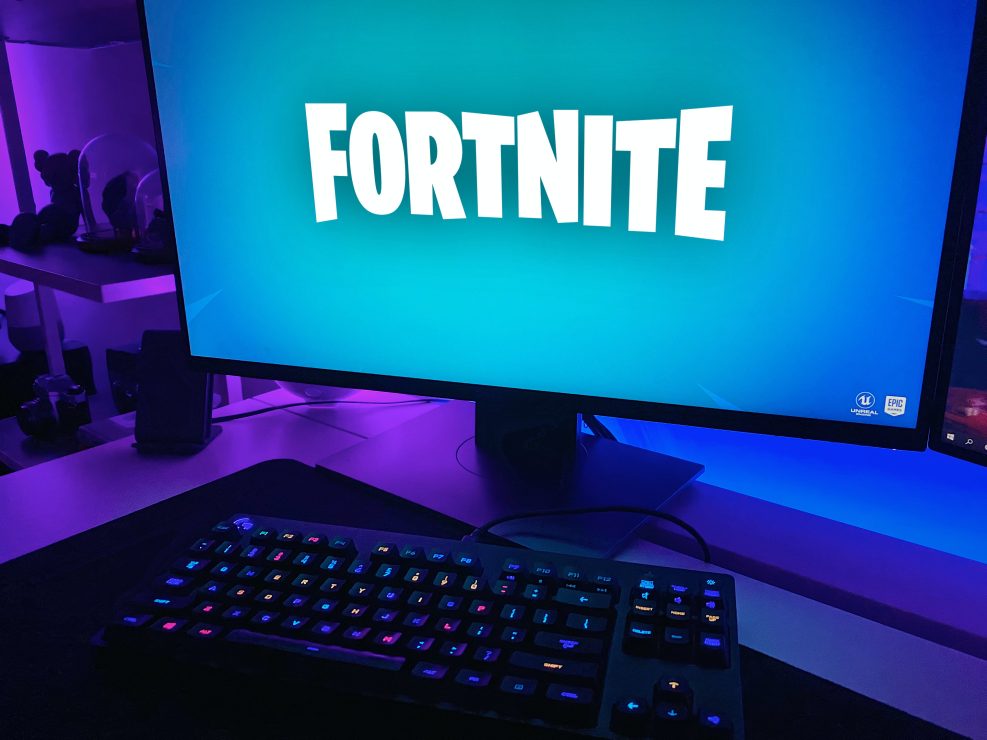Rather than blame the parents, it’s time to hold gaming companies accountable

Photo via Unsplash.
On March 17, a class-action lawsuit was filed against Epic Games, the maker of Fortnite, by a Vancouver parent identified only as A.B. Their reasoning behind the lawsuit was that their son, who downloaded the game in 2018, had developed an addiction to it, due to the game’s purposefully addictive design. As of March 20, the lawsuit still needs approval from a judge and none of the allegations have been proven in court.
Scroll down to this story’s comments on any news site (a horrible decision), and you’ll begin to notice a common theme:
“It’s the parent’s fault.”
“The parent should be supervising their kids.”
“Don’t give the kid a credit card when playing.”
“They should try parenting for a change.”
But if you’ve been following the trends of the gaming industry, you may find yourself agreeing with A.B.’s decision.
You’ve probably heard of microtransactions, which are in-game purchases such as cosmetic skins for the player’s avatar. In their most egregious form, they can be implemented to benefit the player who pays vs. the player who doesn’t. Pay-to-win, you could say. In most games, these are integrated by using in-game currency, like Fortnite’s V-Bucks.
Microtransactions are designed to whittle down the player’s patience, forcing them to pay more money. But if you find yourself saying, “Oh, I’d never fall for something like that,” you aren’t the main target — whales are. This term refers to people willing to sink hundreds, if not thousands, of dollars into these microtransactions.
One such “whale” spent over $10 000 dollars on in-game purchases. He mentioned that what got him started was spending $30 on a city-building game when he was 13. Kids don’t have a firm understanding of money, risk, or addiction; a child who doesn’t have bills to pay doesn’t understand the weight of $30.
If buying cosmetic skins doesn’t sound like something you’d purchase, keep in mind that children have been bullied over having the free default skins in Fortnite. “Default” is an insult that marks you as a target to the social hierarchies that children make inside and outside of school. Kids also equate having a rare skin as being better at the game. 15 years ago, you would be mocked for buying the Skyrim Horse Armour DLC, only $2.50 at the time.
Not to focus entirely on children, as adults with gambling addictions are also at risk of being exploited. Imagine a person trying to escape gambling by playing a video game, only to find a bunch of microtransactions with slot machine-style aesthetics.
And this isn’t the first time Fortnite has gotten in trouble.
On Dec. 19, 2022, Epic Games agreed to pay $520 million US in fines and rebates for tricking players into making unintentional payments, such as pressing a button when the game went into sleep mode. Parents said that Epic Games charged their credit cards without consent.
Epic Games is also being sued in Quebec by three parents with the same reasons as A.B. One of the children reportedly spent over $6 000 on skins. Epic Games’ appeal of the lawsuit has been rejected. Their lawyers argued that there wasn’t enough evidence that the children were addicted and that the purchasing of their in-game currency with real world money shouldn’t have been allowed. This ignores that parents often don’t understand that real world money is being spent in video games, which allows these companies to get away with this.
Epic Games actively puts harmful features into the very foundation of the game. It has prioritized Again and again it has prioritized gambling-like features to make a profit. It’s become so normalized that when a parent rightfully calls out this behaviour, the first instinct of the public is to blame the parent rather than the root issue.
Game companies like Epic Games don’t seem to care about the effects when they added gambling-like features into Fortnite. If a person gets addicted to the game, then that means they’ll spend more money on it. Rather than striving to design a good game, it appears that all Epic Games cares about is making more money each quarter.
If game companies like Epic Games are left alone, they will not regulate themselves, especially if more money is at stake. And since they won’t, regulation against such manipulative practices is essential.






